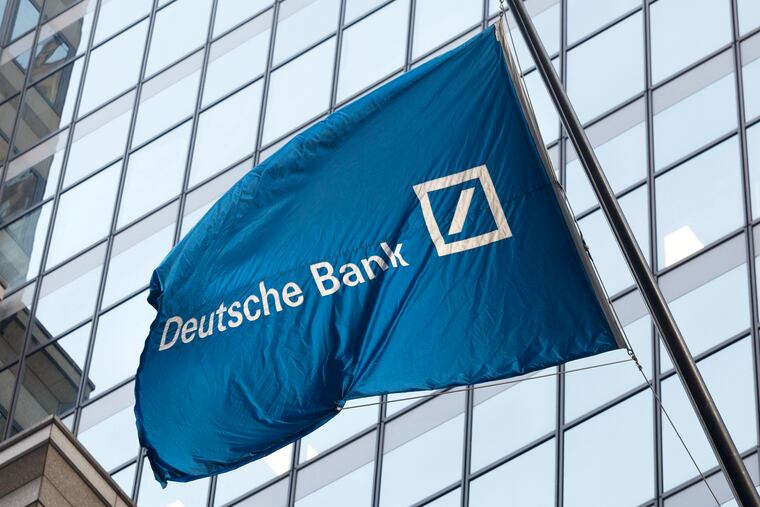‘Dark Towers’ shines light on Deutsche Bank — financier of Trump, Kushner, and Russian oligarchs
The juicy parts of the book pick up where the last scandal involving Deutsche Bank left off — manipulating interest rates amid the 2008 financial crisis.

The juiciest parts of the new book Dark Towers: Deutsche Bank, Donald Trump, and an Epic Trail of Destruction pick up where the last scandal involving the bank left off — manipulating interest rates amid the 2008 financial crisis. This isn’t just an exposé of a massive global bank. It’s also the tragic story of a senior Deutsche executive, Bill Broeksmit, who served as the conscience of the bank over many years. In January 2014, he died by suicide.
In the aftermath, the author worked with Broeksmit’s son, Val, to understand why his father did what he did. Val discovered that his father’s personal email accounts were chock full of official Deutsche Bank documents.
What’s left to be said about a bank that has admitted to enabling the Nazi regime, and also participated in the Libor interest rate scandal? Plenty.
In 2014, Deutsche Bank senior executive Broeksmit was found dead in his London apartment. Broeksmit had helped build the 150-year-old financial institution into a colossus, and his sudden death was a mystery compounded by the bank’s efforts to squelch any investigation.
In Dark Towers, published on Feb. 18 and recently excerpted in the New York Times Magazine, author David Enrich reveals Deutsche Bank’s epic rise from a provincial German bank to a global superpower, and its fall into financial ruin and scandal.
Initially, the book traces the bank’s history financing the construction of Auschwitz, and wooing Eastern Bloc dictators during Soviet times. He then writes about how in the 1990s, under a succession of hard-charging executives, Deutsche made a fateful decision to leave behind its conservative German roots and pursue Wall Street profits. In short order, Deutsche’s leaders took the bank public, manipulated markets, violated international sanctions to aid terrorist regimes, scammed investors, evaded regulators, and laundered money for Russian oligarchs.
Keen for an American foothold, Deutsche also started doing business with a self-promoting real estate magnate nearly every other bank deemed too risky to finance: Donald Trump.
Over the next two decades, Deutsche loaned billions of dollars to Trump, the Kushner family, and an array of scandal-tarred clients, including convicted sex offender Jeffrey Epstein. If you’re looking for a jaw-dropping financial thriller, look no further than Dark Towers, particularly as Trump fights subpoenas on Deutsche Bank releasing his taxes and other financial records.
Vo-tech and veterans
City Council has a measure up for vote on Thursday that would extend preferential treatment to graduates of Career and Technical Education (CTE) programs in the School District taking competitive civil service exams for city jobs.
Currently, there is a preferential “points” system extended only to veterans and the children and grandchildren of first responders killed in the line of duty. Introduced by freshman at-large Councilmember Katherine Gilmore Richardson, the bill proposes amending the Home Rule Charter and triggering a ballot question.
Last week, a number of veterans spoke out in City Council against the bill, and Richardson said her office is trying to make sure everybody’s interests are protected.
“We are still working with stakeholders to hammer out the best way forward for this legislation, in terms of classifications and points awarded,” she said in an email Friday. “I truly believe it will benefit hardworking Philadelphia students without being a detriment to others who currently receive other preferences. Legislation rarely passes in the exact form it started in and I am continuing to work with my colleagues and external stakeholder groups to ensure we get this right.”
Richardson’s bill is being criticized as diluting employment preference to veterans, who represent around 4% of Philly’s workers and just 1.8% of city workers, according to Councilmember David Oh, who opposes the proposed change.
“Philly would be among the first cities to erode the veterans preference,” Oh said. He argues for a hiring tax credit over awarding more “points” to vocational-technical high school graduates on par with veterans.
“The veterans preference is for brothers and sisters in arms,” he said. “CTE graduates get hired quickly and are well paid. There are no lack of opportunities for these grads.”
The final vote and testimony from students and veterans, open to the public, is scheduled for 10 a.m. Thursday in Room 400 of City Hall.